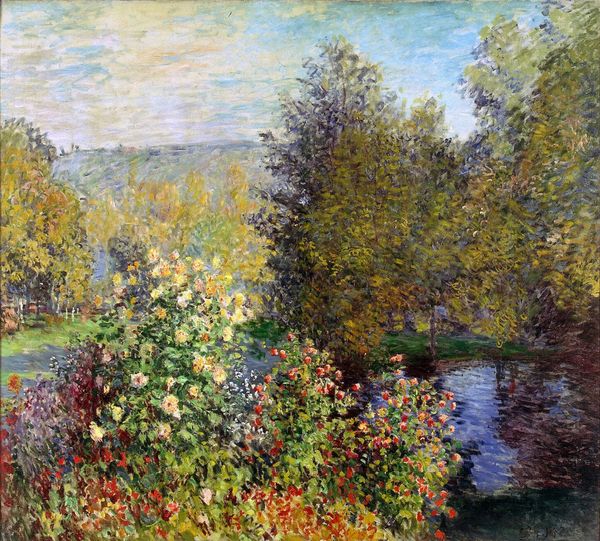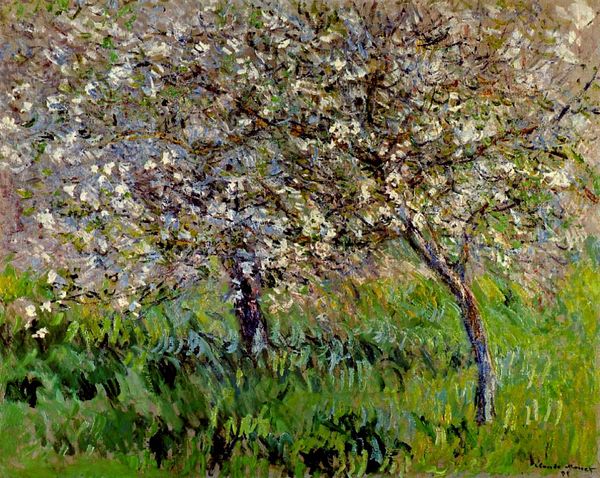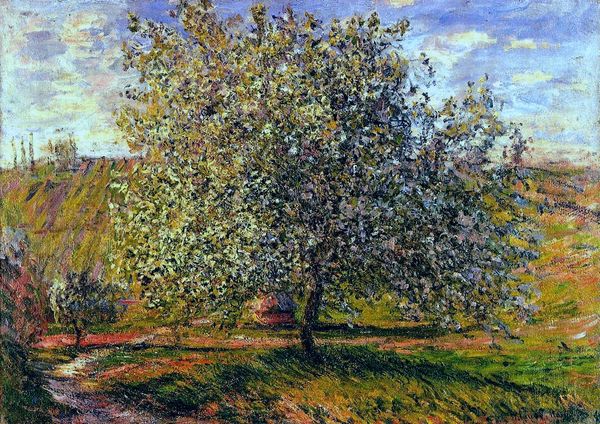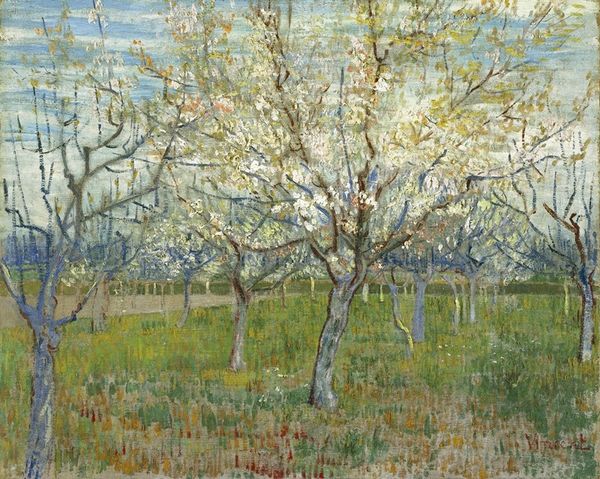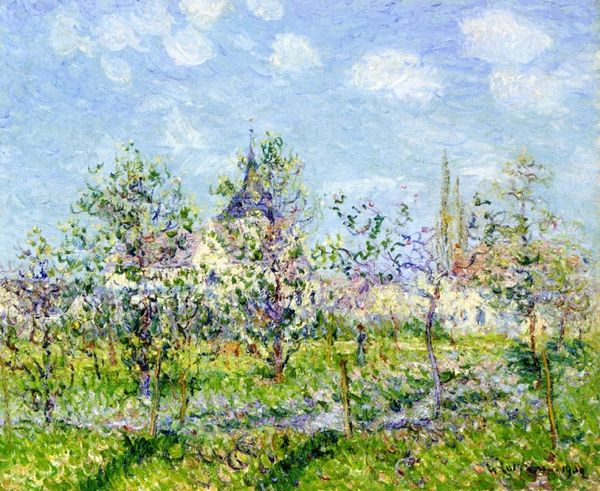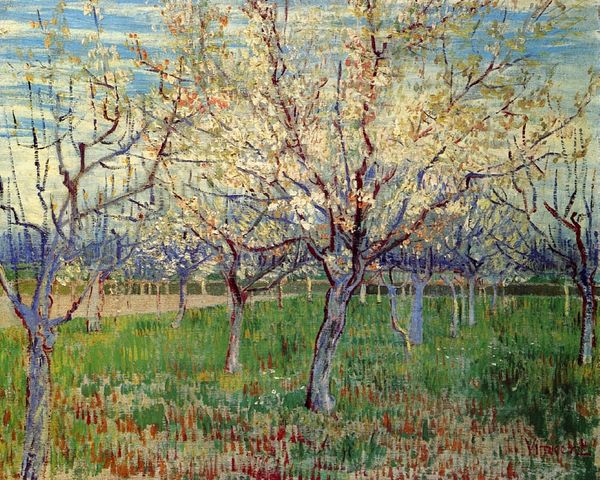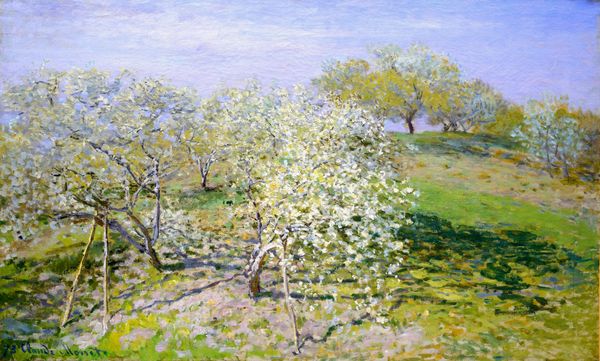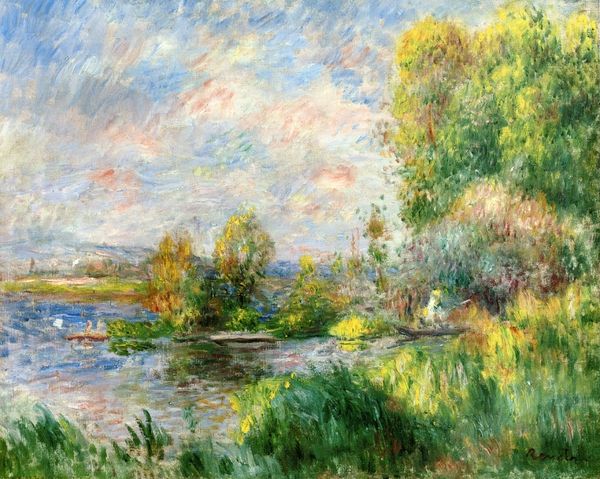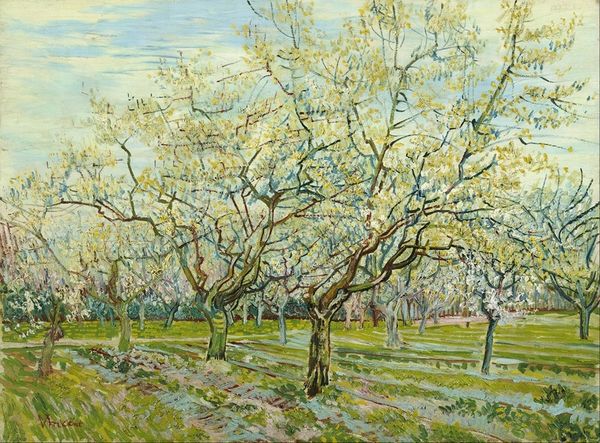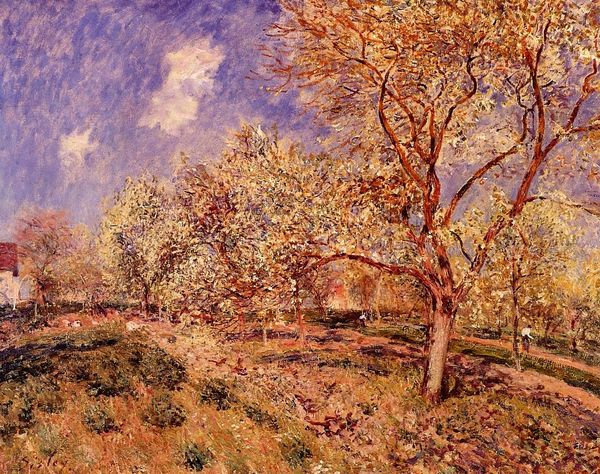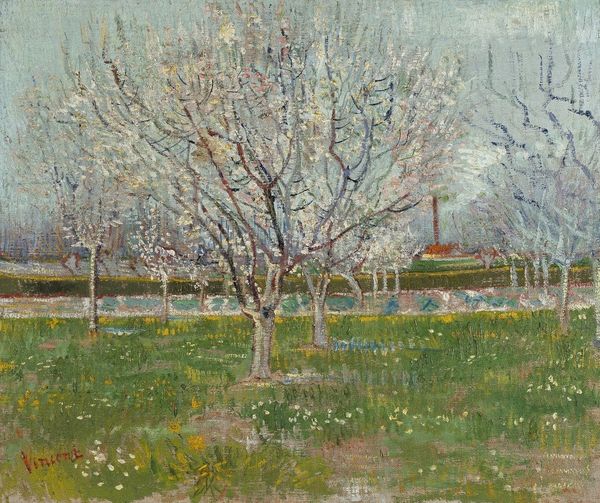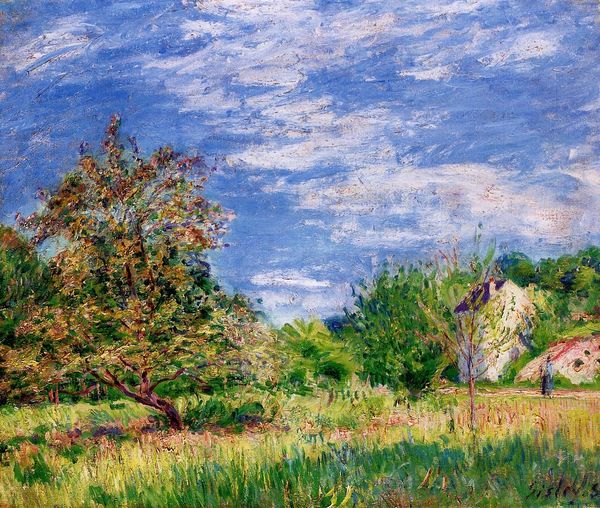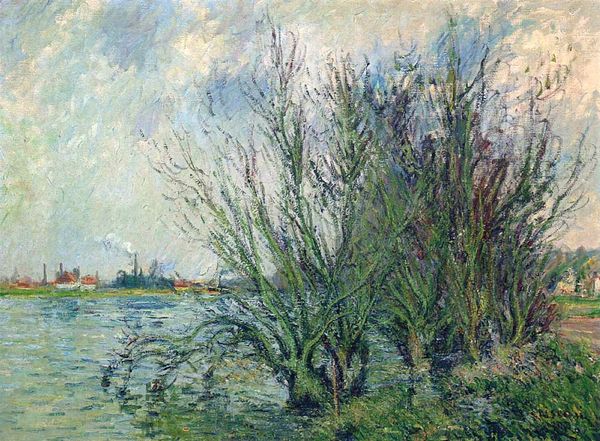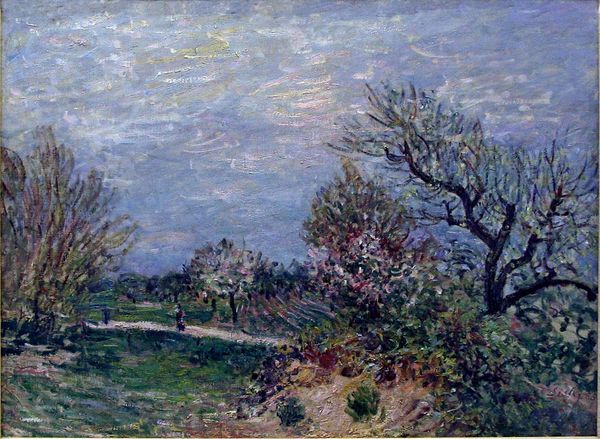
Copyright: Public domain
Curator: Here we have Claude Monet’s “Springtime,” painted in 1880. It is rendered in oil on canvas. Editor: Well, immediately, it strikes me as very ethereal, almost dreamlike. The light is just so delicate, particularly as it hits the flowering tree. It feels fleeting, as though I might miss it if I blink. Curator: Monet was deeply interested in capturing those transient moments. The Impressionists, more broadly, sought to represent the fleeting qualities of light and atmosphere. “Springtime,” however, also suggests the political climate in France during this time. Editor: Politically charged, this dreamy scape? Do tell. Curator: This was post the Franco-Prussian War. France was reconstructing itself, both literally and ideologically. Monet’s focus on the beauty and resilience of nature can be viewed as a response to the national trauma. He presents an optimistic vision of rebirth and renewal in the face of conflict and the ongoing industrial revolution that increasingly separated people from nature. Editor: I see that. But visually, the brushstrokes themselves are so free, almost chaotic up close, which perfectly renders that ephemeral light you mentioned. Monet truly captured the way our eyes perceive the world – not as a fixed, detailed image, but as a constantly shifting field of colors and shapes. How interesting, that chaos is captured into a scene of such beautiful peacefulness. Curator: Absolutely. He found order and beauty in apparent disorder, suggesting France, too, could find new life. You know, it's also worth noting the institutional context here. Editor: Which is? Curator: Well, works like these were frequently rejected from official Salons initially. Monet and his colleagues created alternative spaces to exhibit. It was this collective action that shifted art appreciation in society over time. Editor: A wonderful example of art shaping perception. And perception influencing society. This work serves as both historical narrative and a technical exploration of visual perception. Curator: A point well made.
Comments
No comments
Be the first to comment and join the conversation on the ultimate creative platform.
